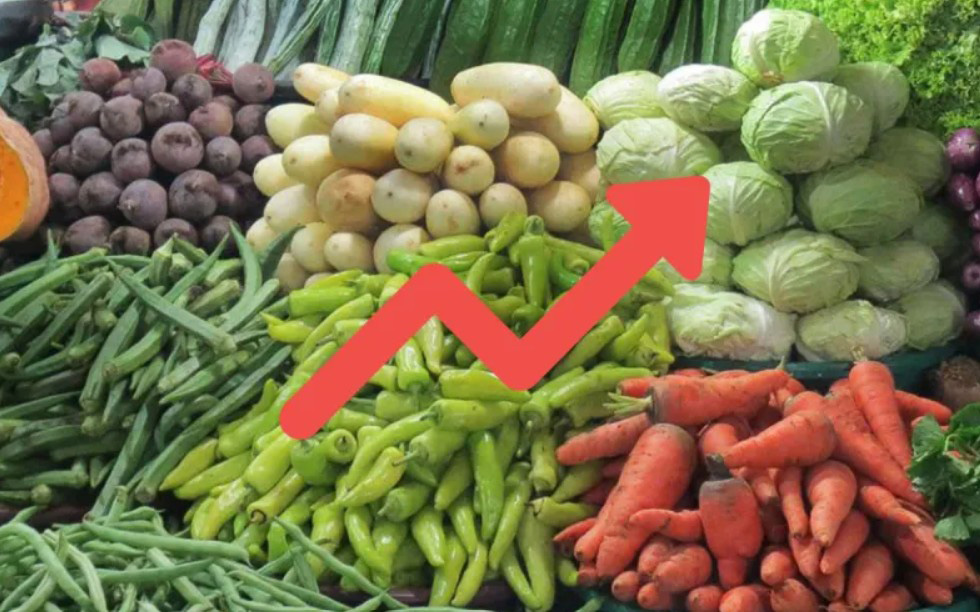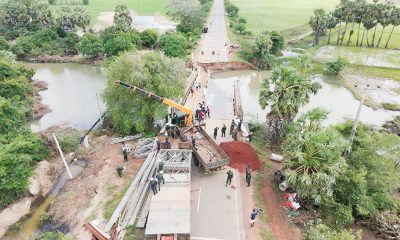News
Curbing air pollution in India needs efforts across South Asia: World Bank report

(The Hindu) India has six large airsheds, some of them shared with Pakistan, between which air pollutants move. While existing measures by the government can reduce particulate matter, significant reduction is possible only if the territories spanning the airsheds implement coordinated policies, says a report by the World Bank made public on Thursday.
Using a modelling approach over South Asia as a whole, the report lays out multiple scenarios and the costs involved in reducing the average South Asian’s exposure to particulate matter. Currently over 60% of South Asians are exposed to an average 35 µg/m3 of PM2.5 annually. In some parts of the Indo-Gangetic Plain (IGP) it spiked to as much as 100 µg/m3 – nearly 20 times the upper limit of 5 µg/m3 recommended by the World Health Organisation, says the World Bank report.
The six major airsheds in South Asia where air quality in one affected the other were: (1) West/Central IGP that included Punjab (Pakistan), Punjab (India), Haryana, part of Rajasthan, Chandigarh, Delhi, Uttar Pradesh. 2) Central/Eastern IGP: Bihar, West Bengal, Jharkhand, Bangladesh; (3) Middle India: Odisha/Chhattisgarh; (4) Middle India: Eastern Gujarat/Western Maharashtra; (5) Northern/Central Indus River Plain: Pakistan, part of Afghanistan; and (6) Southern Indus Plain and further west: South Pakistan, Western Afghanistan extending into Eastern Iran.
When the wind direction was predominantly northwest to the southeast, 30% of the air pollution in Indian Punjab came from the Punjab Province in Pakistan and, on average, 30% of the air pollution in the largest cities of Bangladesh (Dhaka, Chittagong, and Khulna) originated in India. In some years, substantial pollution flowed in the other direction across borders.
What this means is that even if Delhi National Capital Territory were to fully implement all air pollution control measures by 2030 while other parts of South Asia continued to follow current policies, it wouldn’t keep pollution exposure below 35 µg/m3. However if other parts of South Asia also adopted all feasible measures it would bring pollution below that number. “This is also the case with many other cities in South Asia, especially those in the IGP. Accounting for the interdependence in air quality within airsheds in South Asia is necessary when weighing alternative pathways for pollution control,” the report noted.
The report analysed multiple scenarios to reduce air pollution with varying degrees of policy implementation and cooperation among countries. The most cost-effective one, which calls for full coordination between airsheds, would cut the average exposure of PM 2.5 in South Asia to 30 µg/m³ at a cost of $278 million (INR2,400 crore) per µg/m? of reduced exposure, and save more than 7,50,000 lives annually.
“Given the findings, we believe that scientists of India, Pakistan, Nepal, Bangladesh and other South Asian countries must establish a dialogue on air pollution to tackle it with an ‘airshed approach’. This is how the problem has been tackled in other regions, like ASEAN, Nordic regions, and across China. States need to stop blaming and go for a collaborative approach if they wish to reduce air pollution for their citizens,” Jostein Nygard, Senior Environmental Specialist, World Bank and co-author of the report, told The Hindu.
The Centre in 2019 launched a programme called the National Clean Air Campaign (NCAP) that aims to reduce air pollution in 131 of India’s most polluted cities. The target was initially to cut pollution by 20%-30% by 2024 over 2017 levels but has now been revised to cutting it by 40% by 2025-26.
News
Sajith warns country is being dragged into authoritarian rule

Opposition and SJB Leader Sajith Premadasa has alleged that the current government is attempting to suppress freedom of expression and media freedom to lead the country towards authoritarian rule.
In a video message on Thursday (25), Premadasa said that in a democratic country, the four main pillars safeguarding democracy are the legislature, the executive, the judiciary, and the independent media, but, at present, the government is using the police to violate both the democratic rights of the people and the rights of police officers themselves.
He said that the government is working to establish a police state that deprives citizens of their right to access truthful information.
“For democracy to be protected, media freedom must be safeguarded, and space must be given to independent media. Instead, the government is interfering with the independent media process, using the police to suppress and intimidate independent media,” he said.
He noted that even when independent media present their views based on reason, facts, and evidence, the government attempts to suppress them. Such actions, he said, amount to turning a democratic country into a police state. “Do not suppress the voice of the silent majority, the independent media,” he urged.
Premadasa emphasised that independent media represent the voice of the silent majority in the country and must not be suppressed.
“Media repression is a step towards authoritarian rule, and the people did not give their mandate to create an authoritarian regime or a police state. If the government attempts to abolish democratic rights, the Samagi Jana Balawegaya will stand as the opposition against it,” he said.
The Opposition Leader further alleged that the government was interfering with police independence, stating, “Political interference has undermined the independence of the police, making it impossible for them to serve impartially. Suppressing freedom of expression is an attempt to lead the country towards authoritarian rule.”
Premadasa pointed out that the media has the right to reveal the truth, and interfering with that right is a violation of the rights of 22 million citizens.
News
Wholesale mafia blamed for unusually high vegetable prices

Vegetable prices at the Peliyagoda Manning Wholesale Market surged to unusually high levels yesterday (26), raising concerns among consumers as the festive season drives up demand. The situation is expected to persist over the next few days, a spokesman for the Manning Market told The Island.
He said a sharp increase in the number of buyers visiting the wholesale market, ahead of upcoming festivities, had resulted in a sudden spike in demand, prompting wholesale traders to raise prices significantly. The price hikes have affected a wide range of commonly consumed vegetables, placing additional pressure on household budgets.
According to market sources, the wholesale price of beans climbed to Rs. 1,100 per kilogram, while capsicum soared to Rs. 2,000 per kilogram. Green chillies were selling at around Rs. 1,600 per kilogram. Prices of other vegetables, including beetroot, brinjal (eggplant), tomatoes, bitter gourd, snake gourd and knolkhol, also recorded unusually high increases.
The spokesman alleged that despite the steep rise in prices, vegetable farmers have not benefited from the increases. Instead, he claimed that a group of traders, who effectively control operations at the wholesale market, are arbitrarily inflating prices to maximise profits.
He warned that if the relevant authorities fail to intervene promptly to curb these practices, vegetable prices could escalate further during the peak festive period. Such a trend, he said, would disproportionately benefit a small group of middlemen while leaving consumers to bear the brunt of higher food costs.
By Kamal Bogoda ✍️
News
Cyclone-damaged Hakgala Botanical Garden reopened with safety measures

The Hakgala National Botanical Garden, which was closed in the aftermath of Cyclone Ditwah, has been reopened to tourists from yesterday, the Ministry of Environment indicated.
The Ministry said the reopening was carried out in accordance with recommendations and guidelines issued by the National Building Research Organisation (NBRO) and the DisasterManagement Centre (DMC) after safety assessments were completed.
However, due to the identification of hazardous ground conditions, several areas, within the garden, have been temporarily restricted. These include the pond area, near the main entrance, and access roads leading towards the forest park where potential risks were observed. Warning signs have been installed to prevent visitors from entering these zones.
To ensure the safety and convenience of both local and foreign visitors, the garden’s management has introduced a special assistance programme, with staff deployed to guide and support tourists.
The Hakgala Botanical Garden was closed as a precautionary measure during the disaster situation triggered by Cyclone Ditwah. The Ministry noted that the garden has now been safely reopened, within a short period, following remedial measures and inspections, allowing visitors to resume access while maintaining necessary safety precautions.
By Sujeewa Thathsara ✍️
-

 News4 days ago
News4 days agoMembers of Lankan Community in Washington D.C. donates to ‘Rebuilding Sri Lanka’ Flood Relief Fund
-

 News2 days ago
News2 days agoBritish MP calls on Foreign Secretary to expand sanction package against ‘Sri Lankan war criminals’
-

 Latest News7 days ago
Latest News7 days agoLandslide early warnings issued to the districts of Badulla, Kandy, Kurunegala, Matale and Nuwara-Eliya extended till 8AM on Sunday (21)
-

 Business6 days ago
Business6 days agoBrowns Investments sells luxury Maldivian resort for USD 57.5 mn.
-

 News5 days ago
News5 days agoAir quality deteriorating in Sri Lanka
-

 News5 days ago
News5 days agoCardinal urges govt. not to weaken key socio-cultural institutions
-

 Features6 days ago
Features6 days agoHatton Plantations and WNPS PLANT Launch 24 km Riparian Forest Corridor
-

 Features6 days ago
Features6 days agoAnother Christmas, Another Disaster, Another Recovery Mountain to Climb













